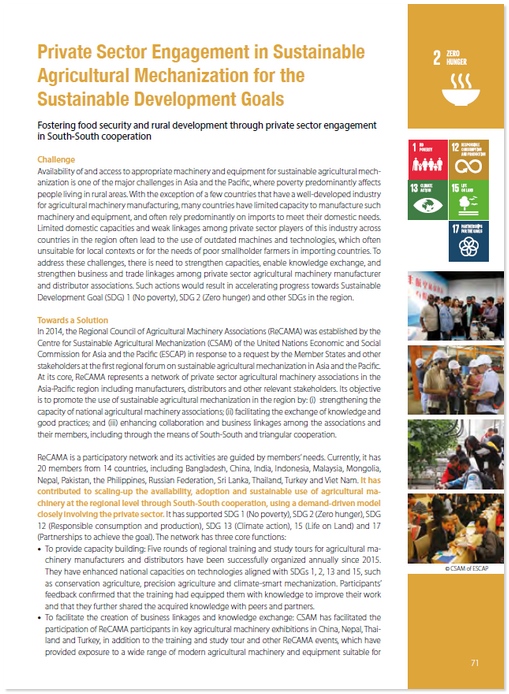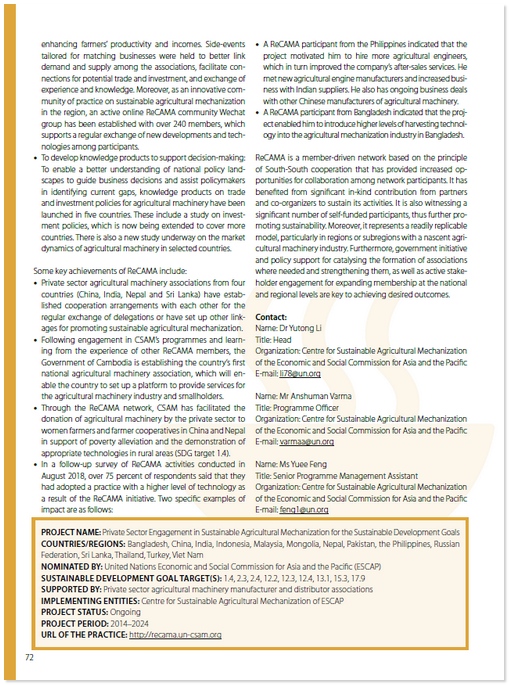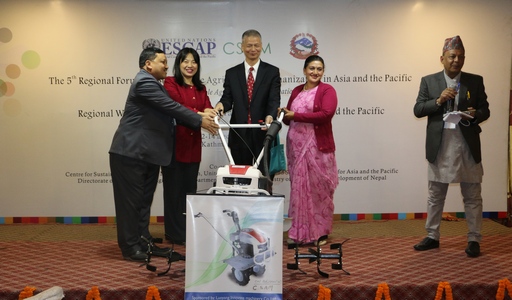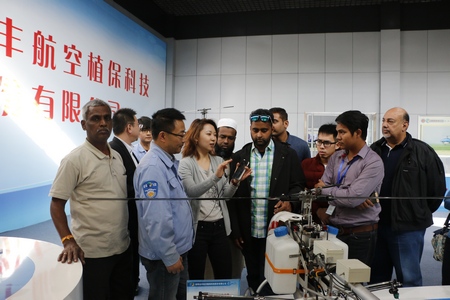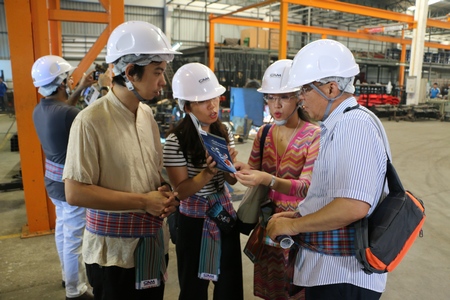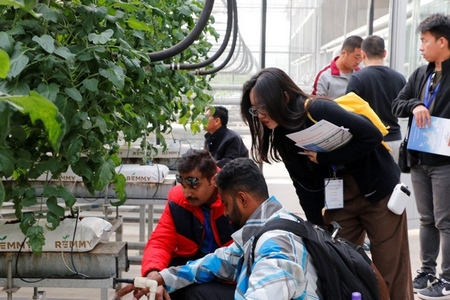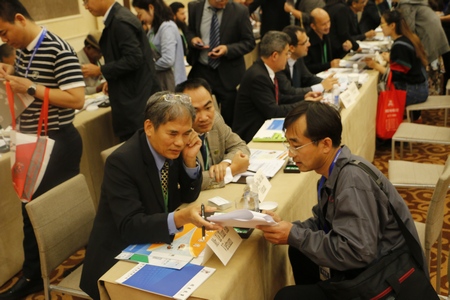ESCAP-CSAM’s ReCAMA initiative cited among “Good Practices in South-South and Triangular Cooperation for Sustainable Development”
10 September 2020 - The ‘Regional Council of Agricultural Machinery Associations in Asia and the Pacific’ (ReCAMA), an initiative of the Centre for Sustainable Agricultural Mechanization of the United Nations Economic and Social Commission for Asia and the Pacific (ESCAP-CSAM), has been selected by the United Nations Office for South-South Cooperation (UNOSSC) as a good practice in its latest compilation of good practices from across the globe.
ReCAMA has been cited in the third volume of the publication “Good Practices in South-South and Triangular Cooperation for Sustainable Development” launched by UNOSSC in New York on 10 September 2020 to commemorate the United Nations Day for South-South Cooperation. Close to 200 good practices contributed by Member States, United Nations agencies and other development partners have been included in the publication following a screening process. This publication is the biggest compilation of the series to date which significantly expands the South-South knowledge base across all SDGs, highlighting innovation solutions, and showcasing a greater diversity of partners now leveraging South-South and triangular cooperation for development.
The publication is available at https://www.unsouthsouth.org/wp-content/uploads/2020/09/Good-Practices-in-SSTC-for-Sustainable-Development-Vol.-3-2020-Digital-Light-FINAL.pdf (please see “Private Sector Engagement in Sustainable Agricultural Mechanization for the Sustainable Development Goals ” from ESCAP-CSAM on p. 71-72).
ReCAMA seeks to strengthen the engagement of the private sector in sustainable agricultural mechanization for attainment of the SDGs. At its core, it represents a network of private sector agricultural machinery associations in the Asia-Pacific region including manufacturers, distributors and other relevant stakeholders. Launched in 2014, and currently having 20 members from 14 countries, ReCAMA has been working to strengthen the capacity of national agricultural machinery associations, facilitate exchange of knowledge and information and enhance business connections and regional trade and investment. Under the initiative, training, study tours, research, and business matching events are undertaken to facilitate knowledge exchange and regional trade among the members. According to a recent survey conducted in 2020, as a result of connections established through various targeted activities, ReCAMA has facilitated regional trade valued at around USD 30,000,000 among the members. More information about ReCAMA is available at http://recama.un-csam.org/.
This is the second time that an ESCAP-CSAM initiative has been selected as a good practice by UNOSSC, following inclusion of the Centre’s ‘Asian and Pacific Network for Testing of Agricultural Machinery’ (ANTAM) initiative in the second volume of the same publication in 2018.


